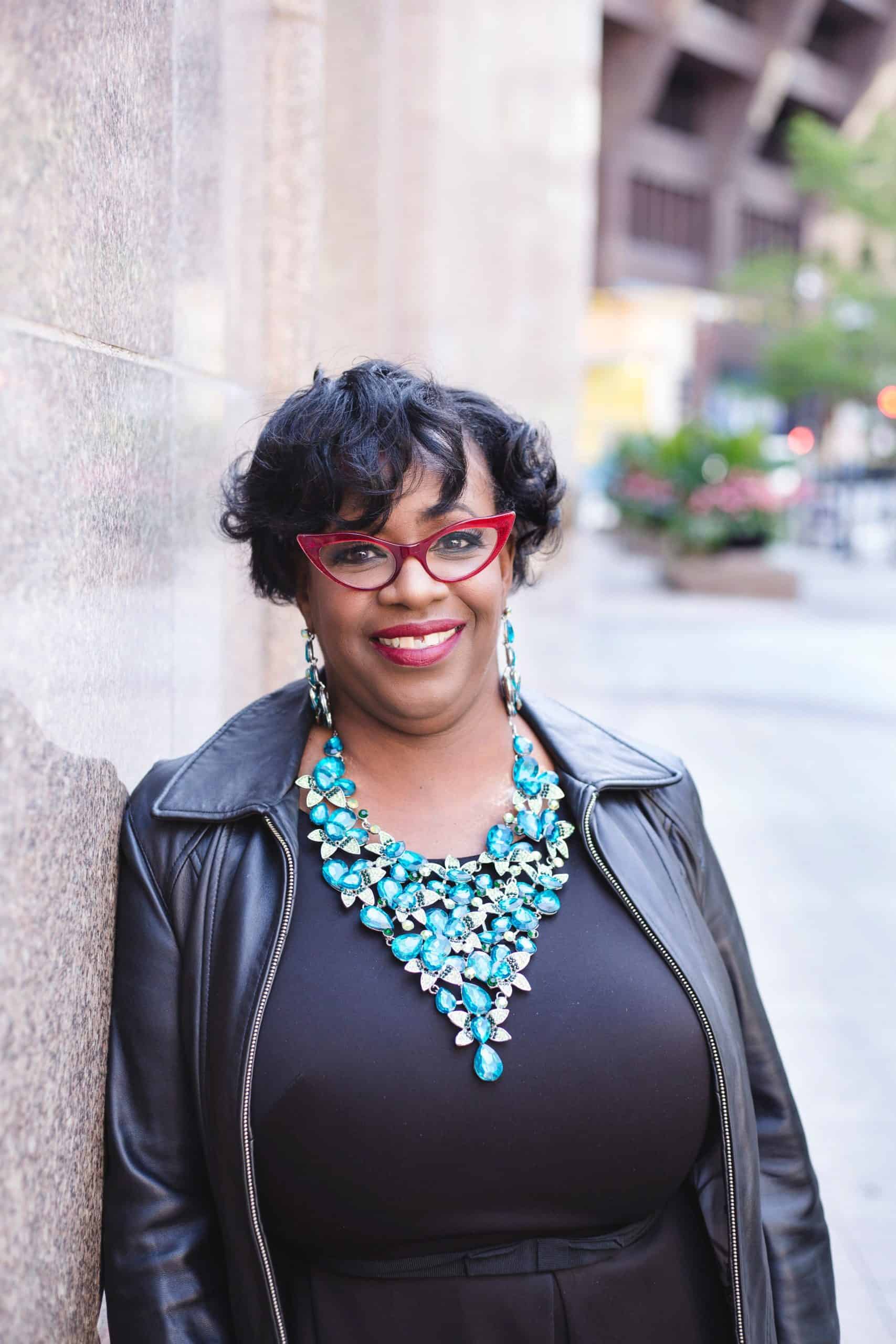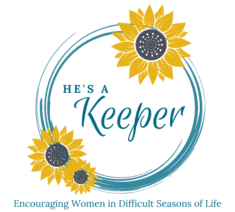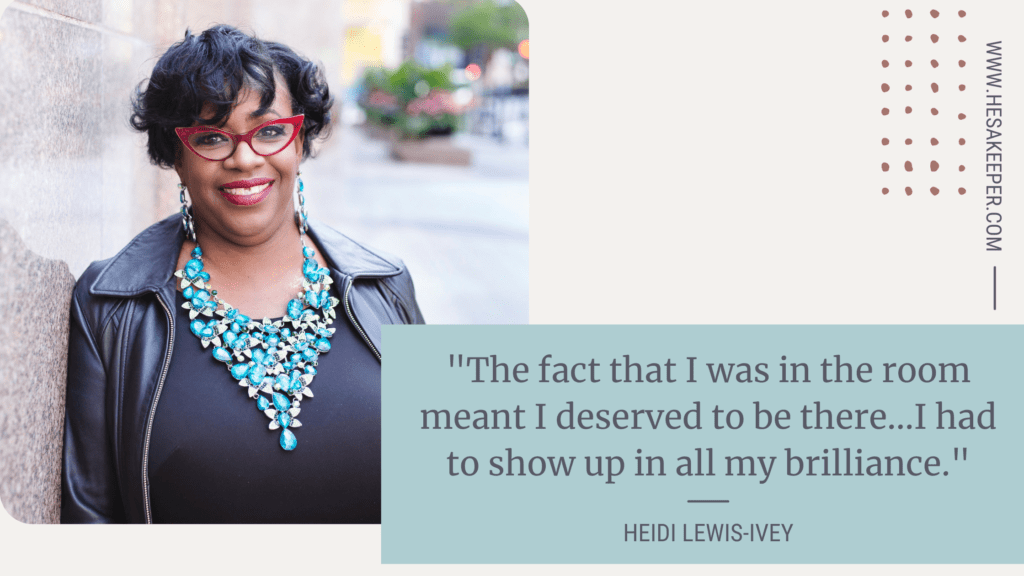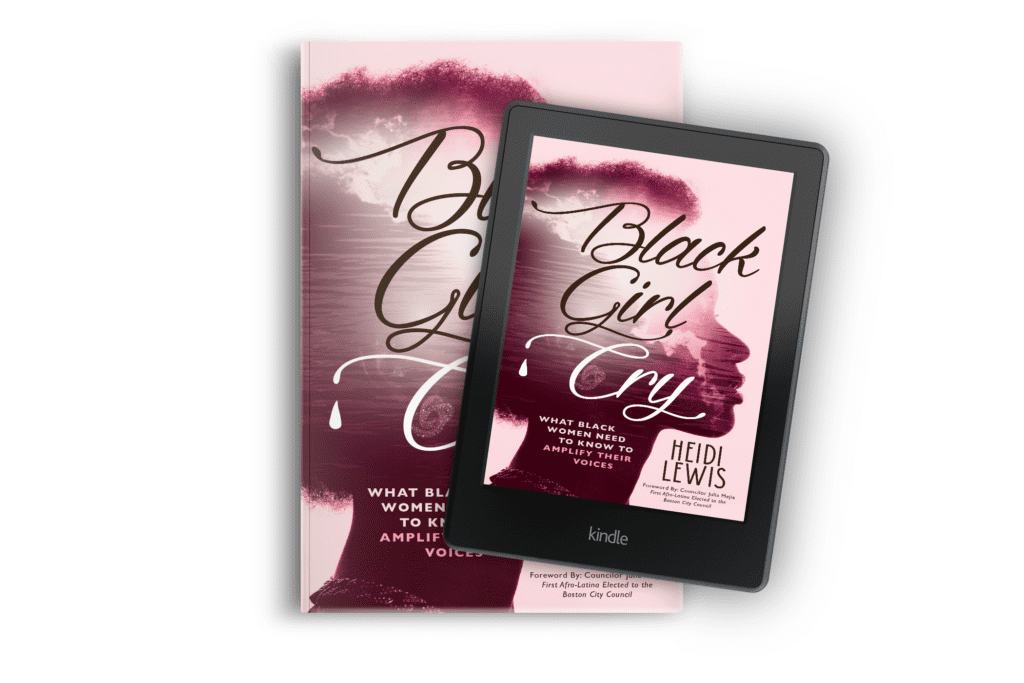Have you ever struggled with accepting who you are? Do you ever want to hide or shrink back in the presence of others because of how you may be perceived? Do you feel the need to change who you are to conform to your environment? Are you ashamed to let your true self shine?
Then sister, if you answered “yes” to any one of these questions, I have great encouragement for you! I recently interviewed a phenomenal woman about her struggle with insecurities in her identity. Those insecurities led to masking her true personality (or as she calls it “hiding in plain sight”) in order to conform to the expectations of others, social pressures, and even harassment. But once she found her true identity in Christ, she laid the mask down to unapologetically exude her most authentic self.
I have no doubt that her story will inspire you! So, without further ado, I would like to introduce you to ordained elder, prophetic minister, internationally acclaimed speaker, and best-selling and award-winning author, Heidi Lewis-Ivey! (You can read more about Heidi in her bio at the end of this post.) My interview questions are shown in bold, and Heidi’s responses are shown in italics.
HEIDI’S STORY OF HIDING IN PLAIN SIGHT
Please describe how insecurity developed in your life as it relates to your identity.
I grew up in a family of strong women led by my grandmother, who taught us we could be and do anything we wanted. Growing up in this environment meant there were certain expectations, whether real or perceived. I lived with a sense that I needed to make them proud.
After my father passed away in my early childhood, our financial status changed, and we were forced to move into the projects, or the ‘P’ as we called them. I learned that classism existed in the projects even though everyone was poor. I was teased because I wore hand-me-down clothing and because I spoke proper English. I was told that I thought I was better than others because my hair was long. I was called ugly, skinny, four-eyes, and teacher’s pet. I shrank. I held my head down so no one would pay attention to me. I tried to become invisible.
High school was a different experience for me. I was no longer the subject of the bullies, I instead, became popular. I had lots of ‘friends.’ I hung out with the ‘in’ crowd and went to the best parties on the weekends. I had an after-school job, which meant I no longer wore hand-me-down clothing. I spent my money on the latest fashion. In fact, I was a trendsetter. I hid my brilliance (or so I thought); I didn’t want to be known as the ‘smart’ girl. So, I cut classes to hang out in the ladies’ room playing cards and smoking.
STRUGGLES THAT ACCOMPANIED THE HIDING
As you sought to live up to the expectations of the women in your family and other social pressures, what emotions did you experience, and how did you cope with them?
I always knew that I would be the first in my family to graduate high school and go on to college. I carried the hopes and dreams of my entire family. The primary emotion was fear. It showed in a couple of different forms:
- I was afraid of disappointing my family. I would often ask myself, “What if I can’t do it?”
- Once I went to college, I was exposed to wealth and privilege for the first time in my life. This made me afraid that someone would find out that I was the poor girl from the projects.
My coping mechanism was to try and fit into this world. I laughed in all the right places, pretended to know things I didn’t, or like music I’d never heard. But I didn’t fit. I wasn’t accepted no matter how hard I tried.
I imagine that it was challenging to pretend to be someone you were not. What obstacles did you encounter as you tried to fit in with those around you?
The pressure at home and trying to fit into an environment that I wasn’t prepared for caused me to withdraw from college after my freshman year. I had to go home and explain to my Mom that I wasn’t able to do it. To compensate for leaving school early, I became an overachiever. I began my career in finance and loved it. Aside from high school, I found a place where I could thrive, and thrive I did. I traveled to conferences, met CEOs of major corporations, and became a member of a major industry group.
A long-standing relationship with a former manager led to my dream job. I walked in the door as an assistant vice president and was quickly promoted to vice president. I had the opportunity to stand up a multi-million-dollar line of business in London. I had an apartment around the corner from St Paul’s Cathedral and traveled around Europe meeting clients.
Back home, I lived in a 3,000 square foot brick colonial and drove a luxury car. I was the girl from the projects who made good. However, it all came with a cost. I was making my family proud, but I was still afraid that someone would find out that I was from the projects and didn’t have a college degree. In addition, I conformed to the dominant culture in the way I wore my hair and how I dressed. I experienced blatant racism and bias. The sad truth is, I experienced much of this behavior from other women. For example, one woman came to my office (my name was on the door) to discuss a project. My manager joined the meeting. Instead of addressing me, she turned and started talking to him. He stopped her mid-sentence and said, “You should be speaking to Heidi; she heads up the business.” I had no one to talk to about these experiences. I cried a lot. No one in my family or in my group of friends understood. My Mom would often say “what happened to my can-do Heidi?”
What role did your relationship with the Lord play as you struggled with your identity and experienced harassment? What role did the church play?
Early on, there was no relationship with the Lord. I didn’t grow up in church even though my great grandparents and great aunt were pastors and founders of churches. I was saved in my early thirties.
The truth is no one knew that I was struggling. I thought I had to live up to the elaborate testimonies that I often heard in church or respond with the classic religious response, “I’m blessed and highly favored,” when asked how I was doing. So, in a lot of ways, the church helped me hide in plain sight.
THE PATH TO FREEDOM FROM HIDING
At what point did you come to know the truth about your identity and realize you could no longer hide?
I thank God for Mother Esther Laird, an older woman who had taken me under her wing and mentored me. Through her Bible teaching, I learned for the first time that I could be honest with God about my lack of self-identity. It was then that I was able to develop an authentic relationship with God.
Psalm 139:14 is my healing scripture. The first time I read it, the Holy Spirit spoke to my heart, and I realized that I was uniquely created. Am I saying that my behavior changed overnight? No. This has been a faith journey of doing the heart work by allowing God to reveal the places within me that led me to hide in plain sight. One of the major reasons was abandonment. When my father passed away, I felt as though he abandoned us, even though I knew he passed away. In 2002, I felt abandoned when my only brother passed away. I know this is an area in which I have to continually submit to the Lord. Does this mean I’m not delivered? No! It means that God’s grace is sufficient for me and that His strength is made perfect when I’m weak. (2 Corinthians 12:9)
What steps did you take to make positive change, and what obstacles/opposition did you face as you made those changes?
This may seem funny, but I was invited to interview at a small technology firm that was disrupting fintech. I knew with my background that I would be made an offer. Following what I thought was a successful interview, I met with the recruiter. I didn’t know it at the time, but what he said revolutionized my entire life. He said, “Heidi, you’re the smartest person I’ve met. You’re comfortable in your own skin (so he thought). You need to be degreed; I can’t make an offer at this time.” I walked out of his office and had to acknowledge the truth. I’d hidden for so long and lived for everyone else. Initially, I didn’t focus on the degree, I focused on finding me. I decided to go back to school in 2010, but this time it was for me. It was a goal I wanted to achieve. I graduated from Boston University in 2012 and completed my Master of Business Administration (MBA) in 2017.
I share these lessons in my book, Black Girl Cry:
- I came to the realization that I was good enough (Psalm 139:14). The fact that I was in the room meant I deserved to be there. Just being in the room was enough. I had to show up in all my brilliance. I had to remember the sacrifices the women in my family made so that I could stand in places they never knew existed. My being in the room reintroduced my family to what Black middle-class life looked like.
- I had to change my mindset. What I believed about myself is what I manifested – fear. James Allen, the author of As a Man Thinketh said, “Our souls attract what we secretly harbor, what we love and what we fear.”
- I was so afraid that someone would find out that I came from the projects, that I didn’t realize my past didn’t dictate my future. I lost focus on the fact that I made it out.
Describe how it feels to be “out of hiding,” and share how you have maintained the freedom you found.
I describe it in one word, liberating. My relationship with God has helped me maintain my freedom. I know that sounds like a cliché, but it’s the truth. It hasn’t always been easy. I’m still learning to say no without apologizing.
LESSONS LEARNED FROM THE JOURNEY OF HIDING
How has this journey impacted your life’s mission/purpose?
My late pastor, Bishop Bernard Bragg, used to say, “The area of your greatest struggle is the area of your greatest ministry.” This journey has helped me to discover my life’s mission/purpose. That is to help women find their voice in the midst of life’s chaos. This means helping them to own their stories, let go of the past, be bold, and be fearless in pursuit of the life they were meant to live.
Your story is so encouraging and provides wisdom for women who are unsure of or insecure in their identity. Are there any resources you would recommend that may help them as they seek freedom from hiding?
As I’ve mentioned before, Psalm 139:14 is a helpful scripture. Also, as Christians, we often frown upon counseling. However, during certain points in my life, I’ve had to see a therapist. It doesn’t take away from our faith in God.
Is there anything else you want our readers to learn from your journey?
The journey continues. Life isn’t a random series of events that just happen. They are breadcrumbs that lead us to our next.
CLOSING COMMENTS
This concludes my interview with Heidi. Her story is a testament to the fact that the Lord keeps us even when we are lost and seek our identity outside of Him. His fingerprint of love is evident throughout her story. I hope you have been encouraged to find your true identity in Christ, accept the wonderful woman He made you to be, and let your light shine unapologetically for His glory.
I would like to thank Heidi for sharing her journey with us with such boldness and transparency. Her encouragement does not stop here! I encourage you to connect with her via any of the ways shown in her bio below. There, you will also find links to purchase autographed copies of her best-selling and award-winning books! I am confident that your life will be enriched by her ministry.

About Heidi Lewis-Ivey
Heidi Lewis-Ivey is an ordained elder, a prophetic minister, an internationally acclaimed speaker, and an award-winning and bestselling author. She is the author of Can I Rest Awhile?; visionary author of Black Girl Cry: What Black Women Need to Know to Amplify Their Voices; and a co-author in Soulful Prayers Volumes 1 and 2 and Soulful Affirmations. She has her Master of Business Administration in Organizational Leadership from Norwich University and a Bachelor of Science in Management from Boston University. Heidi lives in Boston, Massachusetts.
To purchase an autographed copy of her books, click the following links:
- Black Girl Cry: https://publishyourgift.lpages.co/heidi
- Can I Rest Awhile?: bit.ly/iamheidi-canirestawhile
- Soulful Affirmations: bit.ly/Soulful-Affirmations
You can also connect with her via social media or email in the following ways:
IG: iamheidi01
Facebook: Heidi Lewis-Ivey
Email: heidispeaks01@gmail.com
If this interview was helpful to you or you know someone who would benefit from reading it, feel free to share it. Also, leave a comment below or email me any thoughts or questions you have on this post. You can subscribe to my blog at the bottom of this page to receive notifications as other posts are published.




I love this. What an inspiring story! And you know I love Psalm 139:14-16. Especially verse 16 that shows that not only did God form us–but He has a divine vision for our lives. Thank you Melanie for writing it, and thank you Heidi for being so transparent about a common struggle.
Thank you so much for reading the interview and commenting, Kathy-Ann. Your comment is so encouraging. Yes, I hold Psalm 139:14-16 dear to my heart, as well. I love to pray verse 16. It’s so freeing to know that God strategically planned each day of our lives even before we were born. I love His intentionality!